Costa Rica
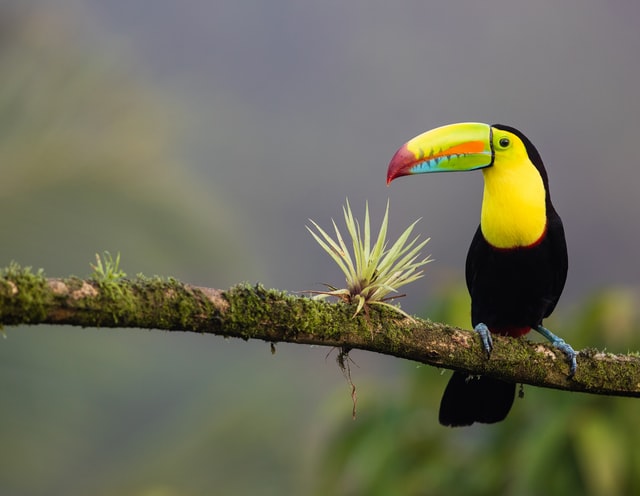
Traveling sustainably when we can travel again, this post highlights our Top 5 favourite accommodation providers that take sustainability seriously, both in their design and construction, and their daily practices.
Kasiiya Tented Camp, Costa Rica
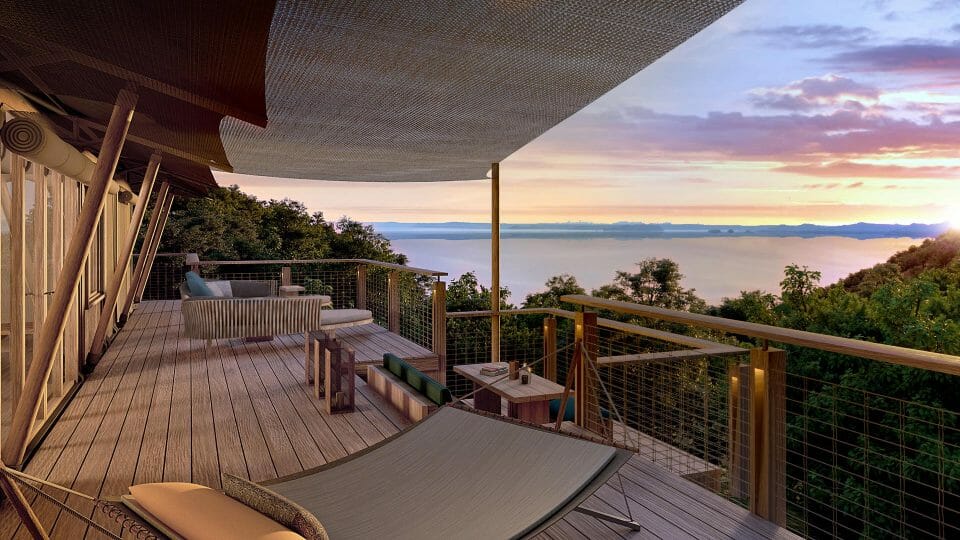
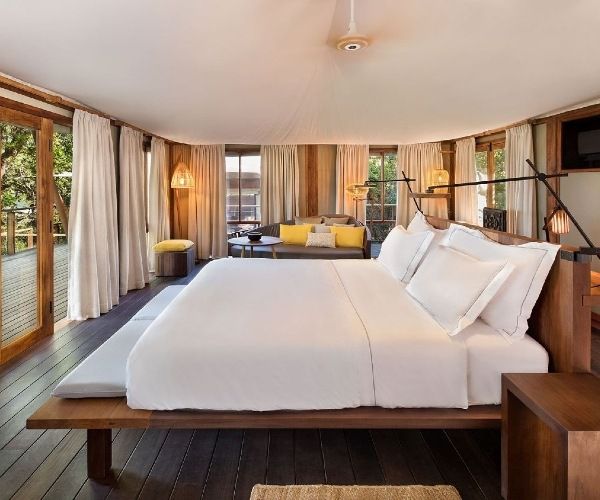
The latest eco-luxe camp in the Americas, the forest and wildlife have top priority here. The Kasiiya Tented Camp property opened last year and was created with near-zero impact on the environment. Each of the five stunning tents is environmentally sustainable, based on timber platforms and exclusively built from natural materials, while the surrounding flora has been retained to leave minimal disturbance on this incredible landscape in Papagayo.
Emirates One & Only Wolgan Valley, Australia
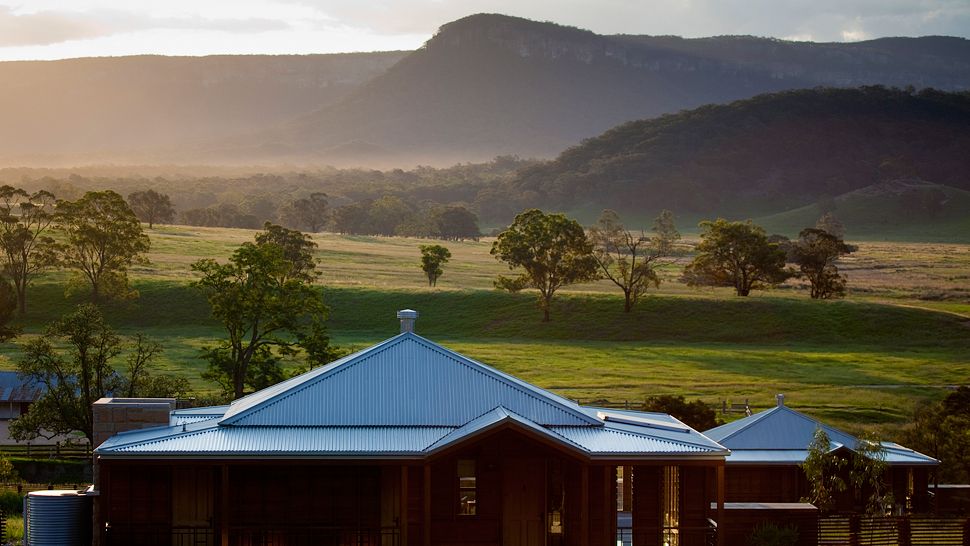
The camp can be booked on an exclusive basis.
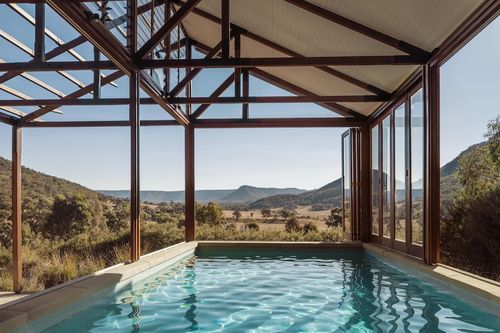
One & Only is committed to sustainability and aims to return the surrounding landscape and environment back to what it was prior to European settlement in the early 1800s. Emirates One & Only Wolgan Valley is carbon neutral, recycles extensively, minimises waste, has halved energy consumption since opening, and sources local, organic produce for your dining delight.
Six Senses, Fiji
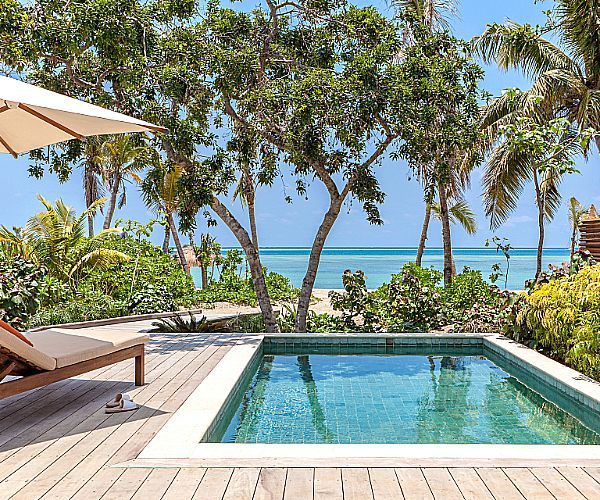
A brand new resort, Six Senses Fiji has developed sustainability programs that include conserving energy and rainwater for the long term. They make their own delicious drinking water in a reverse osmosis plant.
They grow produce organically and their septic tanks are worm-based. They also have one of the largest off-grid solar installations using Tesla battery packs in the Southern Hemisphere. Energy from the sun is used to power the resort and any excess power is used for the desalination plant.
The resort is also home to 17 Fijian crested iguanas, a critically endangered species with less than 5,000 remaining in the world. A recent visit from iguana specialists provided positive insights regarding the species and, with the sighting of two babies, demonstrated that they are successfully reproducing in their protected habitat within the resort.
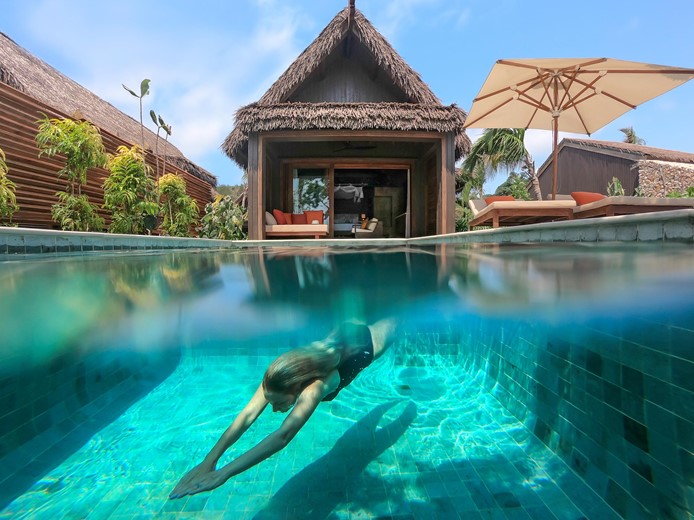
The resort offers apprenticeships and development programs to high potential Fijians with the goal to develop local talent. The resort is working with a number of cottage industries in order to support the local economy.
The resort also collaborates with Rise Beyond the Reef. This NGO works with women in remote communities teaching them to create marketable goods using traditional skills. These goods are used in the villas and restaurants and are for sale in the resort boutique. The profit from these products goes into alleviating poverty in the communities.
Sabi Sabi Earth and Bush Lodges, South Africa
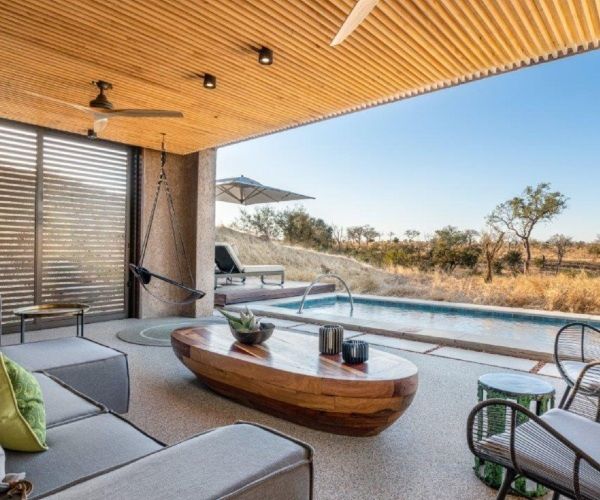
Environmentally-friendly construction materials are used in the building and upgrade of Sabi Sabi Earth and Bush Lodges. These incredible lodges in South Africa’s Sabi Sands are arguably the finest game viewing reserve in the world.
Reverse osmosis was evaluated by Sabi Sabi, but as this would entail wasting 8 litres for every 1 litre produced, in the current climate this was a system they decided would not be responsible in the management of natural water resources in any wilderness environment. So whilst bottled water is still used at Sabi Sabi, the bottles are 100% recyclable and unfinished bottles are used for laundry or watering plants.
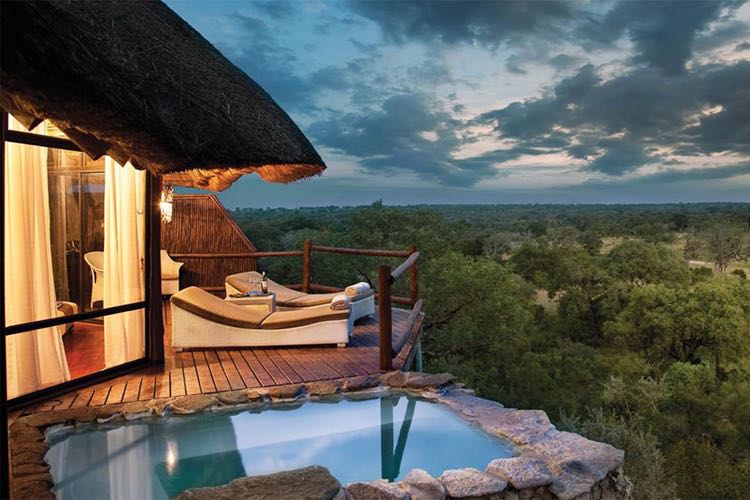
All plastic bottles and lids used at Sabi Sabi are used to create employment opportunities and play an educational role against littering and are donated to a local empowerment group of ladies who recycle the lids and bottles.
A greywater system at Bush Lodge recycles water from baths, basins and showers is used to irrigate the lodges, saving on precious underground resources. All wastewater is pumped into a series of gravitational dams and a natural filtration process takes place ensuring a pure water deposit back into the underground river systems.
Soneva Kiri, Thailand
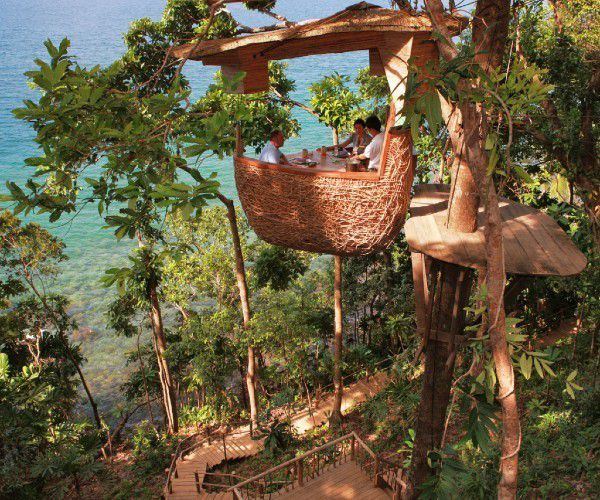
Soneva Kiri is my all time favourite resort for families. And the fact that it is sustainable luxury is the icing on the cake. Soneva banned the use of plastic straws at its resorts as far back as 1998. The resort filters, mineralises and bottles its own Soneva Drinking Water in reusable glass bottles, averting the production of 1,500,000 plastic bottles. Soneva raises around USD 90,000 every year from the Soneva Drinking Water proceeds and has funded over 500 clean water projects in more than 50 countries.
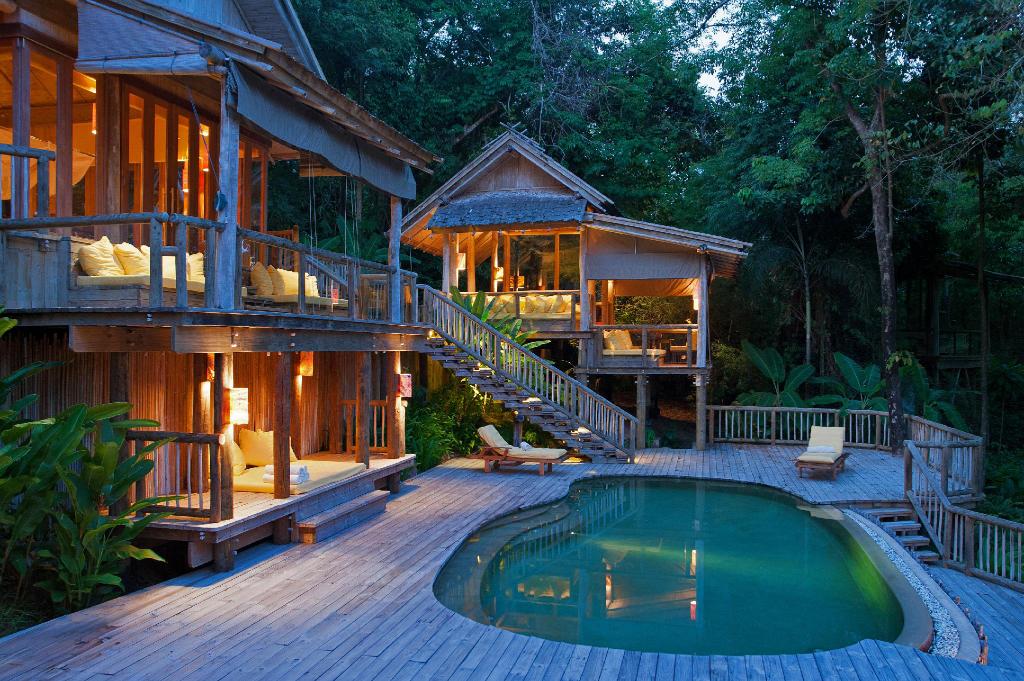
Other initiatives include using sustainable materials, recycling waste, and preserving and protecting the local ecosystem.
By Christopher Hill
